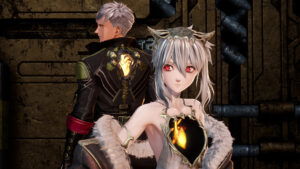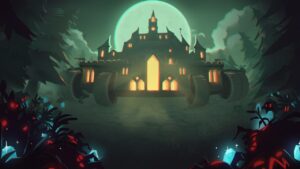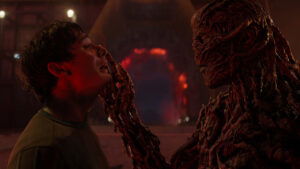From the studio that worked on the Warhammer games, Mordheim: City of the Damned and Necromunda: Underhive Wars, brings a new title developed in-studio with Nacon publishing the game. The Montréal, Canadian-based game studio Rogue Factor finally has the opportunity to create an original IP game: Hell Is Us. Hell Is Us is an upcoming third-person action-adventure video game set to release on September 4th, 2025, for PC, PlayStation 5, and Xbox Series X|S.
With the release date coming up in fall 2025, CGMagazine spoke with Rogue Factor team members to gain more insights into the studio and the development of Hell Is Us. Creative director and art director Jonathan Jacques Belletête, founder and head of Rogue Factor Yves Bordeleau, and audio director Antoine Vachon each discussed Hell Is Us’ audio design, visuals, combat, inspirations, and overall vibes of the game.

This is Rogue Factor’s first original IP game, but there’s plenty of experienced staff here. What defines Rogue Factor’s culture and community-building here—that special sauce?
Yves Bordeleau: Very good question. The most important thing is that we go way back in the past. When I started the studio, we were a really small team. There are people around here that I’ve known and I’ve worked with for the last 20 years. It’s very family-oriented, almost. We’re a small family, and we grew as a studio doing Warhammer games first.
Then, Jon [Jonathan Jacques Belletête] called me and we’re like—
Jonathan Jacques Belletête: I said, ‘What’s up dude! Hey, buddy, I’m fed up with [AAA] games.
(Everyone chuckles)
Yves Bordeleau: [Yes, that’s when I responded], ‘This is it. Let’s do it.’ Jon brought a lot of the AAA process, the high-level philosophy behind developing high-quality titles. On my side, I [brought] the bootstrapping, resilient type of indie culture. We kind of made Voltron together. (Everyone dies of laughter).
Jonathan brought some of his crew who worked on Deus Ex: Human Revolution, and I brought my whole crew. That guy (looks over at Antoine Vachon) was working for a friend of mine, and we ended up having a beer. [That same evening], I convinced him to come work for us.
Antoine Vachon: I come from a more indie background. What I can say about Rogue Factor is that we’re [right in the middle of being an indie and a big studio]. We never lost the indie creative agency that an indie team has, [even though] we’re a big studio.
Yves Bordeleau: We’re about 62 people here, but 55 developers worked on [Hell Is Us]. We’re all senior [developers] with lots of experience.
Jonathan Jacques Belletête: [Hell Is Us] is in the AA spectrum. It wasn’t cheap, but it wasn’t expensive either. It looks more expensive than it is. It [works this way] because we wear so many hats, and have so many experienced people.
In my humble opinion, [Hell Is Us] is a near-perfect game because no game is perfect. Resident Evil 4 on GameCube was too long and boring in the castle, or like BioShock’s shooting [mechanics] can’t be compared to Call of Duty. Visually, [Hell Is Us] is not perfect. But when you look at it and see the price, [it makes sense].
Yves Bordeleau: Having everything done in-house is a perk. Instead of being a huge, Titanic ship, we’re a small speedboat. We’re nimble, we can do iterative stuff, do things fast, and that played a big part to our advantages. That’s the magic and luck of [Rogue Factor].
Jonathan Jacques Belletête: Yes, luck. We’re lucky to have built this. We’re absolutely happy with it!
Yves Bordeleau: One of the key things when we got acquired by Nacon was that moment that maybe we could make our first original IP. Having people like Jonathan and the rest of the very experienced people that worked at [places like] Eidos-Montréal and Warner Bros. [Games Montréal] facilitated a lot of the recipe we have.
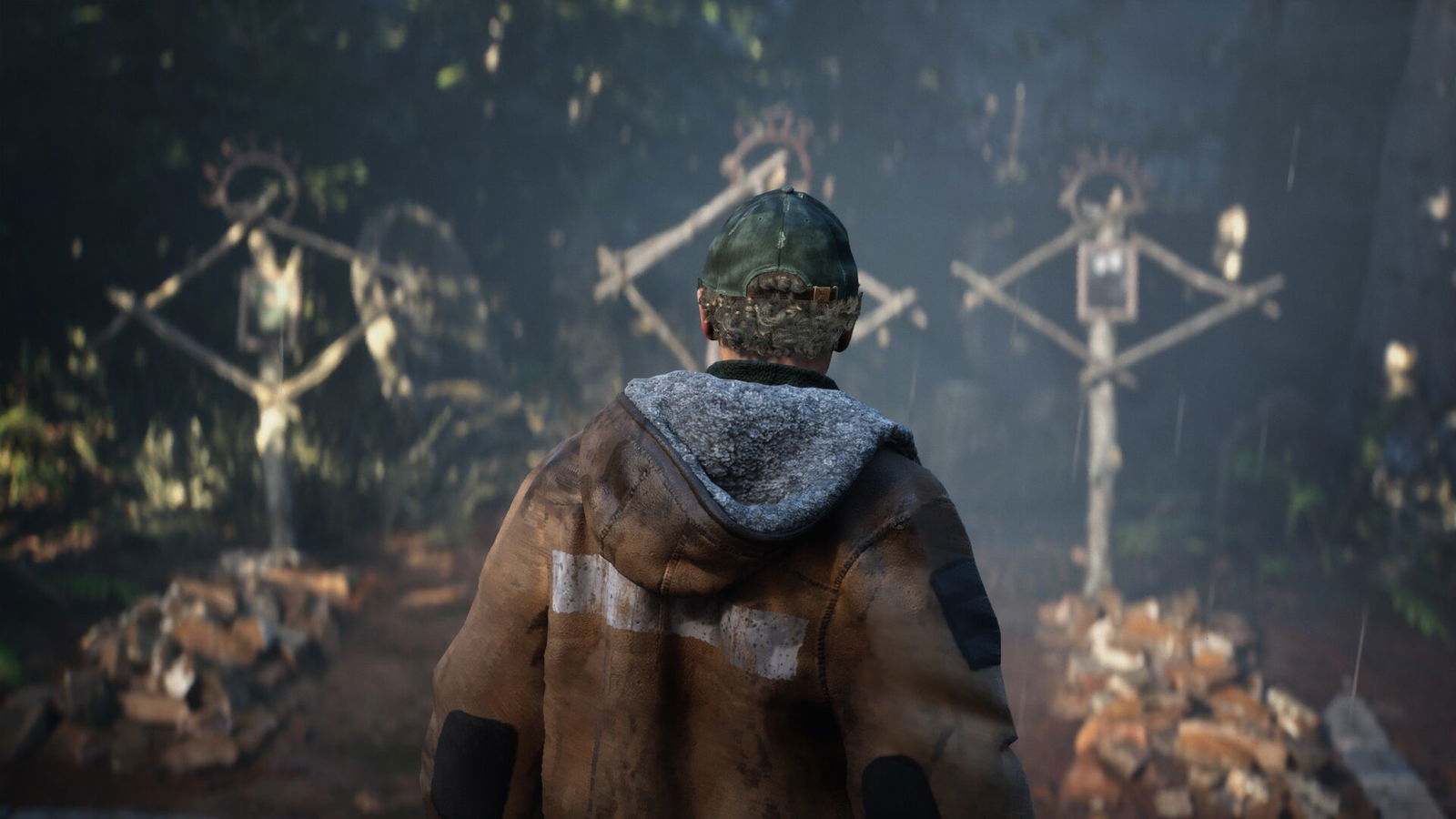
Hell Is Us drops its first teaser trailer in 2022, and that was the same year Unreal Engine 5 was fully introduced. I know Hell Is Us uses Unreal Engine 5, so what impact did that have on developing Hell Is Us?
Yves Bordeleau: We are really good buddies with the guys at Epic Games. We’ve worked with them before. The tools and all the new stuff that Unreal Engine 5 brought helped us attain that visual quality that usually bigger studios could pull off.
Jonathan Jacques Belletête: Yeah, we were already using Unreal Engine 4. So, it was very natural for us. It wasn’t easy [to switch over], but there was no question about it. [Unreal Engine 5] helped democratize [the level of quality].
This also makes me wonder about the technical audio and sound software used in Hell Is Us.
Antoine Vachon: We use Wwise, which is a middleware made by Audiokinetic. It’s been bought over by Sony. It’s a Montréal-based company, and it’s widely used for games. What we focused on [for Hell Is Us] was the new 3D audio technology. That’s usable on any console; it’s either Dolby Atmos [on Xbox] or the Tempest [3D AudioTech] engine on the PS5.
You just have to turn it on, and then you get really cool spatialization that you really feel immersed if you’re playing with headphones. I encourage players to use it if they can because we optimized the mix and the sound work for this to feel like you’re there.
Oh, yes. I stopped playing for a bit to hear the ambiance, the raindrops—
Yves Bordeleau: And you can feel [the raindrops] on the controller as well.
Yes, the haptic feedback is amazing!
Antoine Vachon: A lot of the ambient sounds [was from] one of our sound designers, Charles-Antoine Morin. He loves to travel and go camping, and he brings a recorder with him. He records animals and ambient sounds himself.
As someone who loves games and movies, Annihilation has come up numerous times in previous interviews for Hell Is Us. Where did the inspiration from Annihilation play into your game?
Jonathan Jacques Belletête: Annihilation was mostly a way for me to communicate the music and how I wanted the game to sound—at the highest level. Our game is definitely not a Lovecraftian game, but there’s a cosmic horror aspect.
[In Annihilation], this weird thing, they don’t know where [the entity] is from. It doesn’t seem to be magic. It could be explained scientifically, but we don’t know. Annihilation [also] had an amazing soundscape. It was a few paddings, horns, and things I really liked. Then, it became a language to talk with Antoine [Vachon] with. Apart from that, just by fluke, [Annihilation] and [Hell Is Us] are both cosmic horror.
Antoine Vachon: Geoff Barrow and Ben Salisbury made music for most of Alex Garland’s movies, other than Annihilation. It’s been a big inspiration for the sound we did. We’re big horror fans; we’re big movie fans in the sound team. So there’s very diverse inspiration, not just that. I don’t know if you probably know [David] Cronenberg, but his son, Brandon Cronenberg, made a movie called Infinity Pool. The music and audio in that movie are so good. And there are lots of fibers for inspiration.
Jonathan Jacques Belletête: Yes, even Under the Skin, with Scarlett Johansson.
Antoine Vachon: Yes. Jonathan Glaser’s other movie, [The Zone of Interest], the sound of that movie is also amazing. It’s a fantastic lesson in how to use silence, and the discomfort it can create.
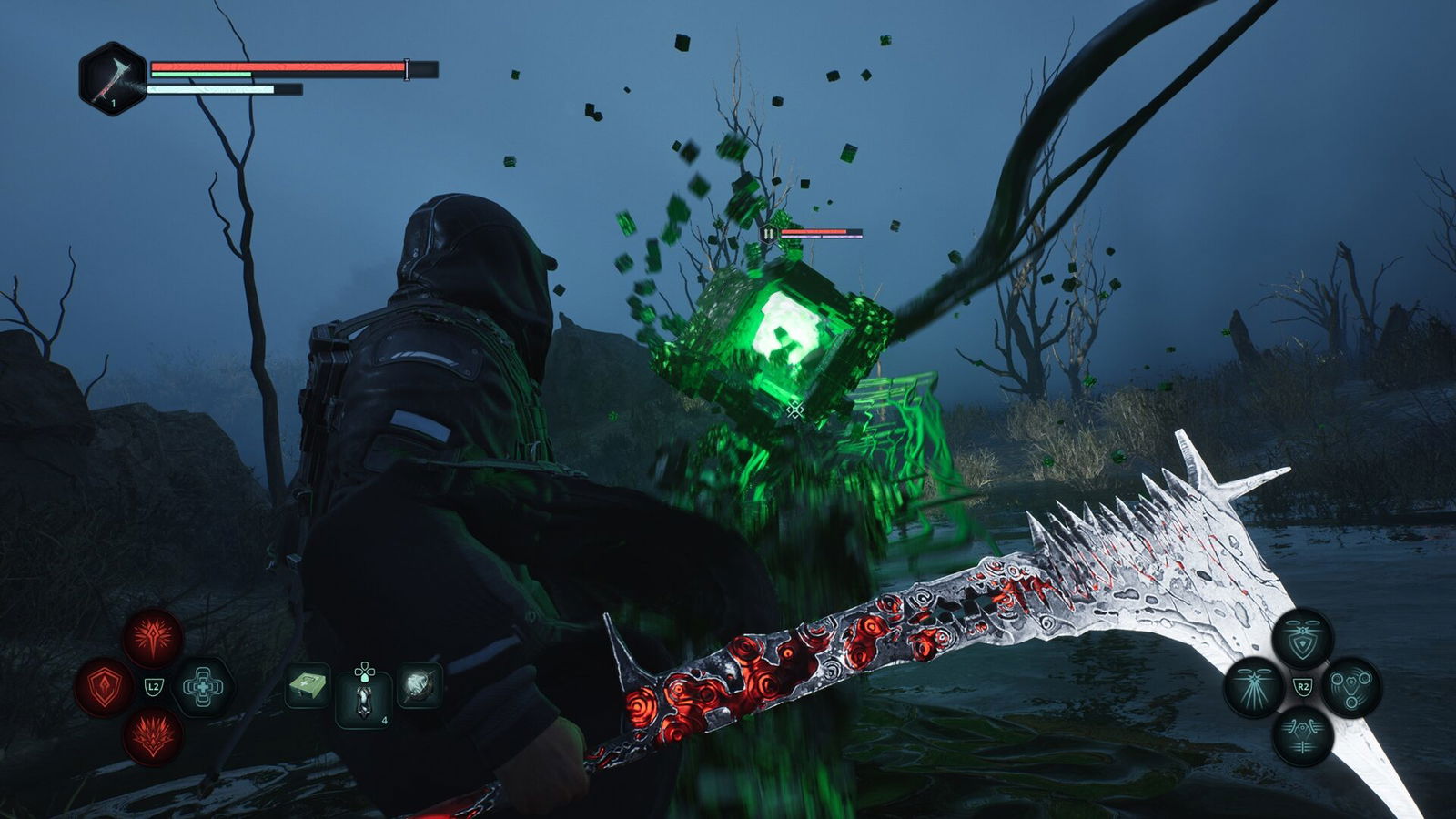
Yes, big kudos to you too, Antoine. The sound design also matches these inspirations and Hell Is Us. The Hollow Walkers, especially the Hazes, those sounds are so—
Yves Bordeleau: So [messed up, right?]
Yes! The visuals also go crazy to match the crazy sounds!
Antoine Vachon: (Turns to Jonathan Jacques Belletête) I give credit to Jonathan too because you pushed us.
Jonathan Jacques Belletête: Yes, we wanted [the sound] to be special. So, we asked, ‘Is that special enough yet, or is that not special enough?’
Right. Adding the wind chimes as a guide is a smart addition. I’m curious, are there going to be more elements similar to that throughout Hell Is Us?
Antoine Vachon: There are many objectives, but one of the points is to tell the player: listen. Listen, because it’s not just what you’re going to see; it’s not just what we’re going to tell you. Open your eyes and open your ears. Yes, it is for the gameplay, but also hints at the lore. If the player listens and tries to figure out why [the Hazes] are making these sounds, you’ll get some ideas about the lore.
Jonathan Jacques Belletête: In Metroid Prime, when you were in a room that had a stash of secret missiles, there was a sound in that room that you could hear. You don’t remember the sound, and they didn’t tell you about that. And eventually, in the game you were playing, it’s like, ‘There’s a sound that I hear.’
When you realize, every time there was a secret, like an energy reservoir or extra missiles, that sound is there. Then, you realize every time you hear it, it means there’s something hidden somewhere. So, there are things like that in [Hell Is Us] as well.
One of the unique combat characteristics in Hell Is Us is the healing pulse aspect. I found the mechanic especially clutch when I was running out of healing items. What inspired you to add that mechanic?
Jonathan Jacques Belletête: It came out of necessity. The Design Director, Bruno [Parenteau], and I both had this idea for a long time—for creating a game where the stamina is tied to your health. It’s like in real life. There’s no such thing in real life where you just have one health point left, yet your stamina is full. It doesn’t exist. How can you be on your last little health, and your stamina is full? It’s a game, I know.
In terms of health, it’s a bit different. But still, having full health and no stamina is also weird. For example, once a boxer’s stamina is empty, having one health point is like when they can’t even hold their gloves up to protect themselves anymore. Protection is almost as tiring as hitting.
So, we always had this [concept] of every time your health goes down, your stamina goes down with it. And we tried it, and then quickly we realized that it also creates a negative feedback loop: the less health you have, the less hits you can give because your stamina is short as well. Then, we needed a way to compensate [players] to rebalance it.
Team Ninja’s Nioh 2 is great. That’s a real Souls-like game. The Ki Pulse is a way to spend your stamina. It’s much harder in that game, more hardcore. But if you do a proper button ballet, you can recuperate part of the stamina that you spent. We got inspired by that, like, ‘Hey, we can do a more midcore version of this.’ [The button ballet] with the enemy is like a Guitar Hero thing.
[In Hell Is Us], we call it the Lymbic Pulse. Even though there are references to Nioh 2’s [terminology] and inspired [mechanics], it wasn’t easy to make our version of it. It was also [tough] to make it work, and fun—not make it too easy, but not too hard to master either. It’s been quite a journey, but I think it works quite well.
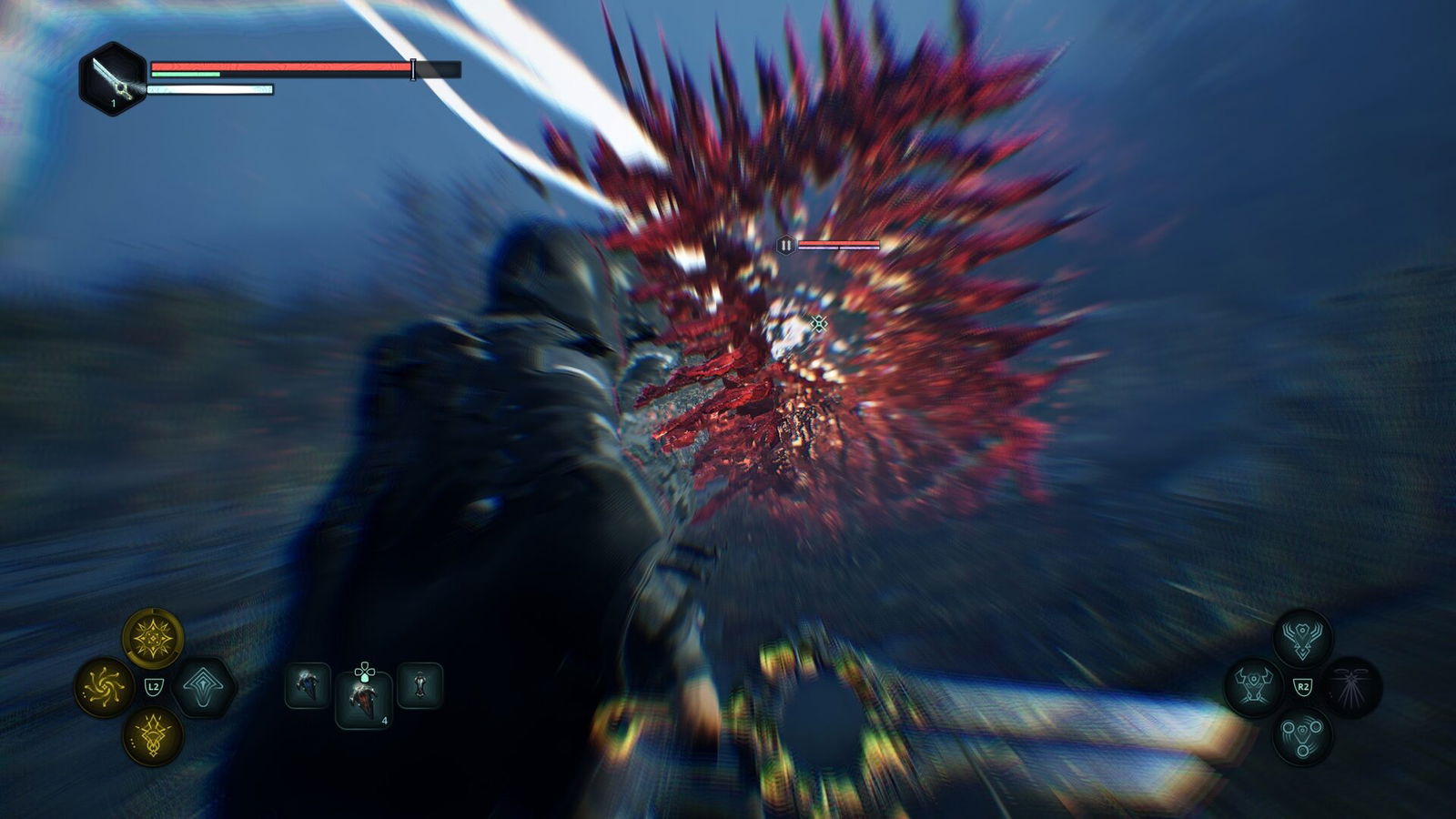
Last question I always love to end off with: what is one thing that each of you hopes Hell Is Us players enjoy?
Jonathan Jacques Belletête: (Looks to Antoine) Don’t say the music man.
(Everyone bursts out laughing)
Antoine Vachon: (Chuckles) No. I’m a big gamer, and I know a game is good if when I go to sleep, I’m thinking about it. [Also], I don’t just shut off the game. Either a song from the game is stuck in my head, I have images, or I have a lingering emotion. If something is lingering, then I think the game succeeded. If we can do that for the players [on Hell Is Us], then we’re going to be happy.
(Yves Bordeleau is about to speak)
Jonathan Jacques Belletête: (Looks to Yves) Don’t say the money.
(Everyone laughs hysterically)
Yves Bordeleau: Besides that, I really want the players to feel the joy of exploration and discovery. [I want players] to have that feeling, the real joy of like, ‘Oh my God. Like, I found that! It’s my own discovery.’ Like when I played my own games [in my room] and I saw a puzzle that I was [stumped on], and then I eventually got it. I was like, ‘Oh man, I’m smart!’
[It’s that feeling like], ‘No way anybody else in the world can figure it out. We have those little a-ha moments in [Hell Is Us].
Jonathan Jacques Belletête: Yeah, it’s the same as Antoine for me, [and how that’s] the signature of a great game. And I’m not saying ours is a great game; that’s up to the public and journalists, like you, to tell us.
But when you turn off your console or your PC, you’re still caught [thinking about] what you were doing [in the game]. Either there’s an emotion that lingers, or a weird thing that you’re trying to figure out—or you simply can’t wait because of this thing you saw you believe is linked to that other thing. [It’s the feeling that], ‘first thing tomorrow, that’s what I’m going to try [when I boot up the game].’ Games that do that are the good games.


